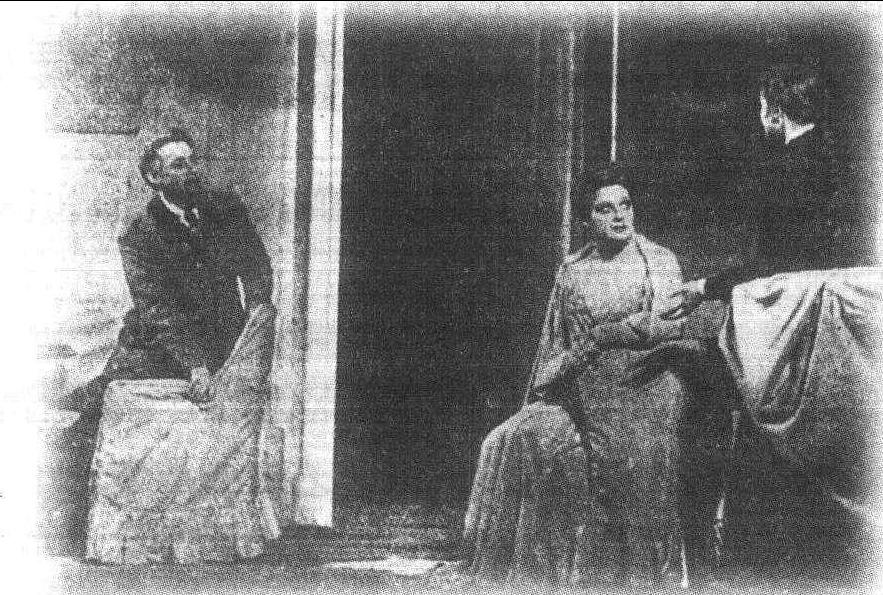《万尼亚舅舅》
俄国戏剧,作者契诃夫。
这部作品描写了与剧名同名的主人公,为了一个伪学者牺牲了自己的爱情和青春年华的故事。他曾一度有过反抗的想法,但终于向命运屈服。作者描写了俄罗斯知识分子的生活,充满苦闷和彷徨。
契诃夫在平淡无奇的生活描写下面,深邃地刻画了人物内心激烈的矛盾冲突。越到结尾处,这种冲突越强烈,而主人公的无力抗争,又使观众深深地感叹到痛苦。这部戏将个人之间的冲突转移到个人与社会间,是契诃夫的戏剧风格以及由《海鸥》创立的莫斯科艺术剧院演出风格的形成作品。它在政治、文学以及戏剧意义上,都非常深远。

《万尼亚舅舅》
万尼亚舅舅
俄国剧本。系俄国作家契诃夫所作。为4幕乡村即景剧。写的是“小人物”为了别人卑劣的“幸福”而荒废了自己的生活的悲剧。万尼亚舅舅一多年来一直带着母亲、外甥女索尼娅在庄园里辛辛苦苦地工作,为的是供养姐夫谢列勃里亚科夫教授。万尼亚舅舅一直把姐夫当作偶像来崇拜。后来谢列勃里亚科夫退休,带着年轻美丽的第二个妻子叶列娜来到已故前妻的陪嫁庄园,也就是万尼亚舅舅管理的庄园。他们的到来,不但打破了庄园平静的生活,而且使万尼亚终于发现教授只不过是个不学无术的庸才,而自己却为他白白地牺牲了宝贵的青春。不但如此,叶列娜还破坏了索尼娅的爱情,毁掉了她的希望。而教授和叶列娜在离开之前,又不顾万尼亚等人的生计想卖掉庄园。万尼亚在盛怒之下向教授开了两枪,但未命中,经过痛苦的思索,万尼亚没有找到别的出路,与教授和好,注定还得把后半生白白地献给这个庸才。剧本描写了万尼亚舅舅觉醒到妥协的过程,真实而细致地反映了19世纪末期俄国一批有理想、有才能的知识分子在看不到希望的社会中探索、挣扎的痛苦心情及其不知为何而奋斗的可悲命运。他们都清楚自己的可悲处境,又无法摆脱它去过另一种新的生活,只能与现实妥协。剧本不追求离奇的情节,情节是简单的,人物是普通的,而这些平淡无奇的描写却揭示了社会的本质意义。作者善于用舞台环境和人物语言渲染气氛,剧情被安排在闷得令人窒息的气候条件下,人物的言谈举止吞吞吐吐、犹豫不决在整体上形成一种压抑气氛,有一种引起观众思考的情绪氛围,具有浓郁的诗的含蓄性和抒情性。